Skis might be your vehicle of choice on a backcountry mountain expedition, but snacks are the fuel that keep you going. While overpriced chicken fingers and cheeseburgers that resemble cheeseburgers in name only are always available at a ski resort, if you’re planning a full day in the backcountry, a lodge cafeteria won’t exactly be at your fingertips. To stay nourished and energized for the backcountry, you’ll need to plan ahead.
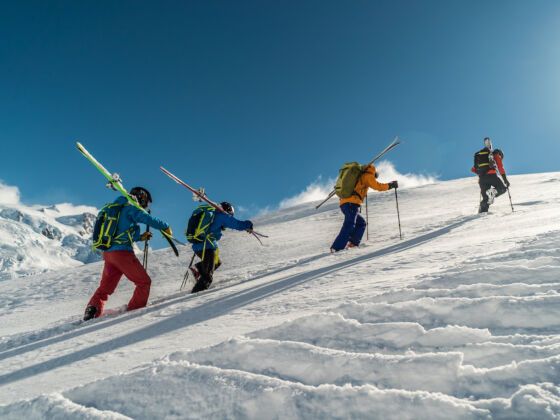
7 Convenient Snacks to Fuel You Through Your Next Backcountry Ski Trip
According to studies, a mixture of healthy carbs and protein are the ideal combination for keeping your energy up, and reducing the potential for muscular injury. Allen Tran, Head Chef of the US Ski Team, told Ski magazine that a balance of fast-burning carbs like what you can get from sports drinks or juice along with slower-burning carbs like peanut butter sandwiches and whole wheat bread is ideal. Carbohydrates are especially important for both stamina and muscle exertion, a Mississippi State University study found. When it comes to winter sports like skiing and snowboarding, which take place in cold temperatures and often at high altitudes, even more attention must be paid to your nutrition.
A study published in the Journal of Sports Sciences examined the ideal nutrition for winter sports and found that “the most important nutritional challenges for winter sport athletes exposed to environmental extremes include increased energy expenditure, accelerated muscle and liver glycogen utilization, exacerbated fluid loss, and increased iron turnover.” Replenishing these lost nutrients is therefore crucial to a successful (and safe) day in the backcountry.
We drew from experience and connected with the pros to narrow down the best snacks to bring on this winter’s backcountry ski adventure, from ready-to-eat Pop-Tarts to pre-prepared baked potatoes.
We hope you love the products we recommend! Just so you know, Matador may collect a small commission from the links on this page if you decide to make a purchase.
1. Bagel with bananas and peanut butter
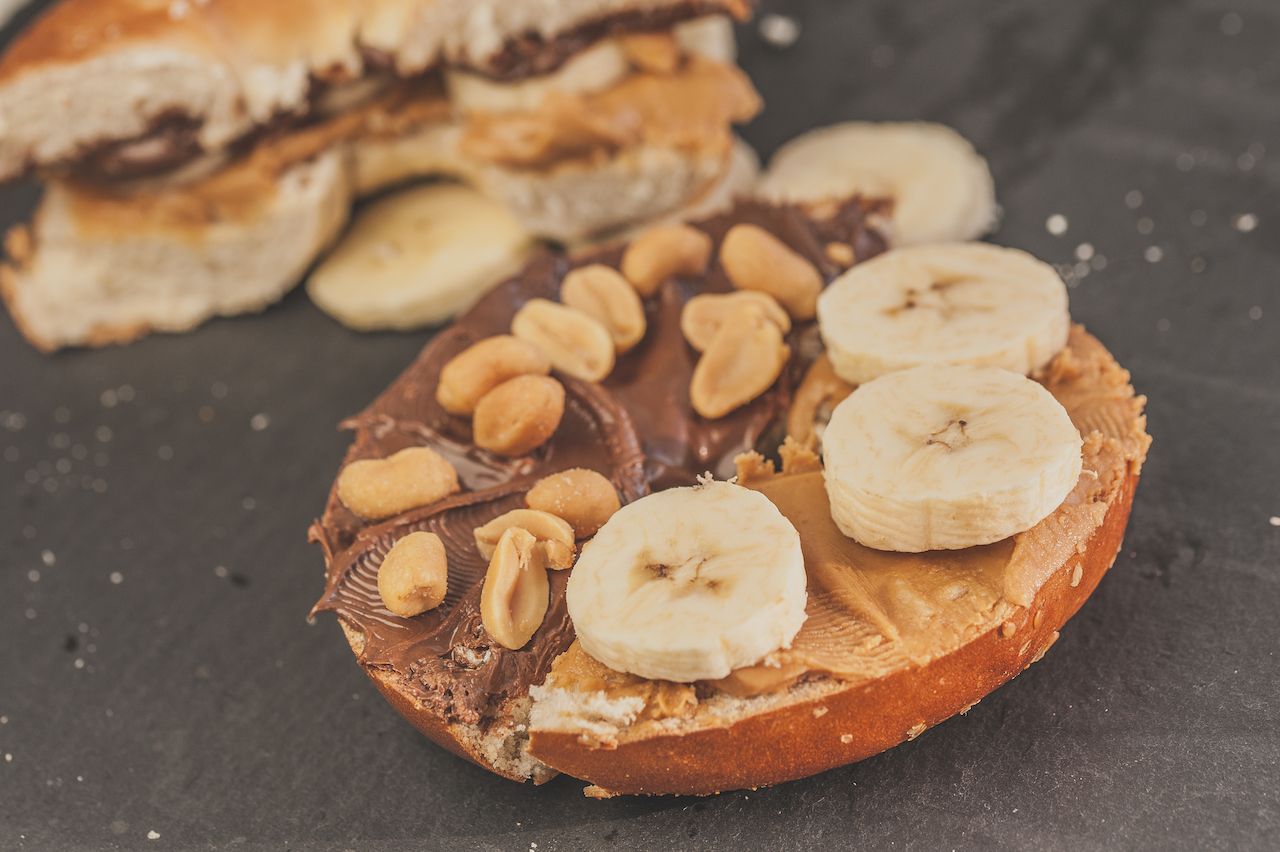
Photo: Stephan Schlachter/Shutterstock
This DIY snack might give you the best bang for your buck. Just take your bagel of choice, and load it up with peanut butter and banana slices. It’ll give you plenty of carb-fueled energy, potassium, and healthy fats in a small, easy-to-transport package. After a hearty breakfast, two of these bagel sandwiches evenly spaced throughout the day should be enough to keep you going. There’s even a company that sells peanut butter in a pouch, which is perfectly designed for the slopes when you don’t want to take the whole jar with you. Peanut butter is a common ingredient in ski snacks for a good reason. WebMD notes that it’s full of protein and healthy fats that will give you a much-needed energy boost, as well as being a great source of Vitamin E, B6, and magnesium.
2. Dried mangos and figs
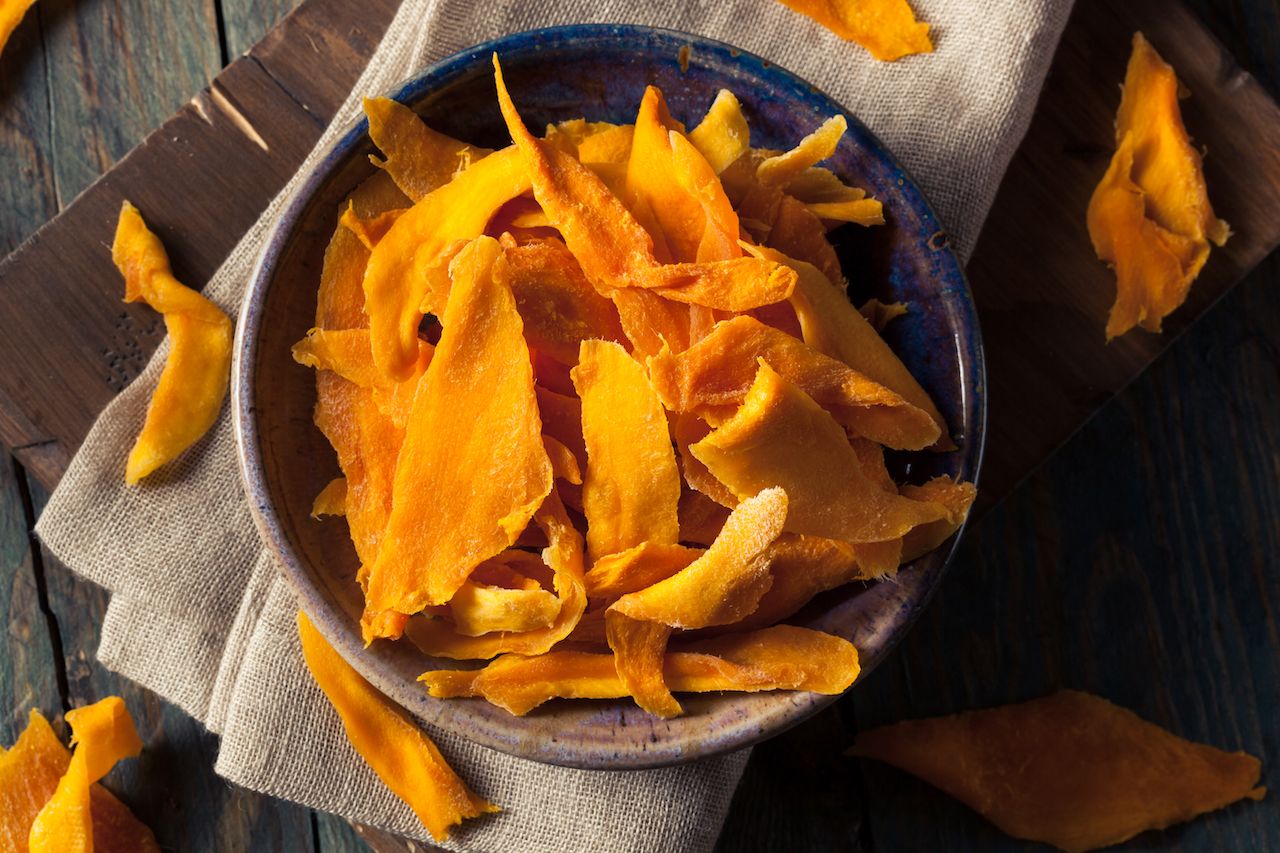
Photo: Brent Hofacker/Shutterstock
Dried fruit is an old hiking standby, and by the same token, it’s also great for skiers. Dried fruits are rich in vitamins, proteins, and fiber, and full of juices that help you hydrate. Michael Shaffer, pro skier with Black Crows Skis, prefers dried mangoes and figs in particular.
“Dried mangoes are nice as they create saliva and are easy to swallow while moving,” he says, “but figs pack more of a potassium punch.”
Other dried fruits like dates are also rich in the vitamins, proteins, minerals, and natural sugars that are invaluable for skiers out for a long day in the backcountry. Apricots are another option, providing 47 percent of your daily vitamin A needs in just one serving. They’re also a key source of potassium.
3. Pop-Tarts
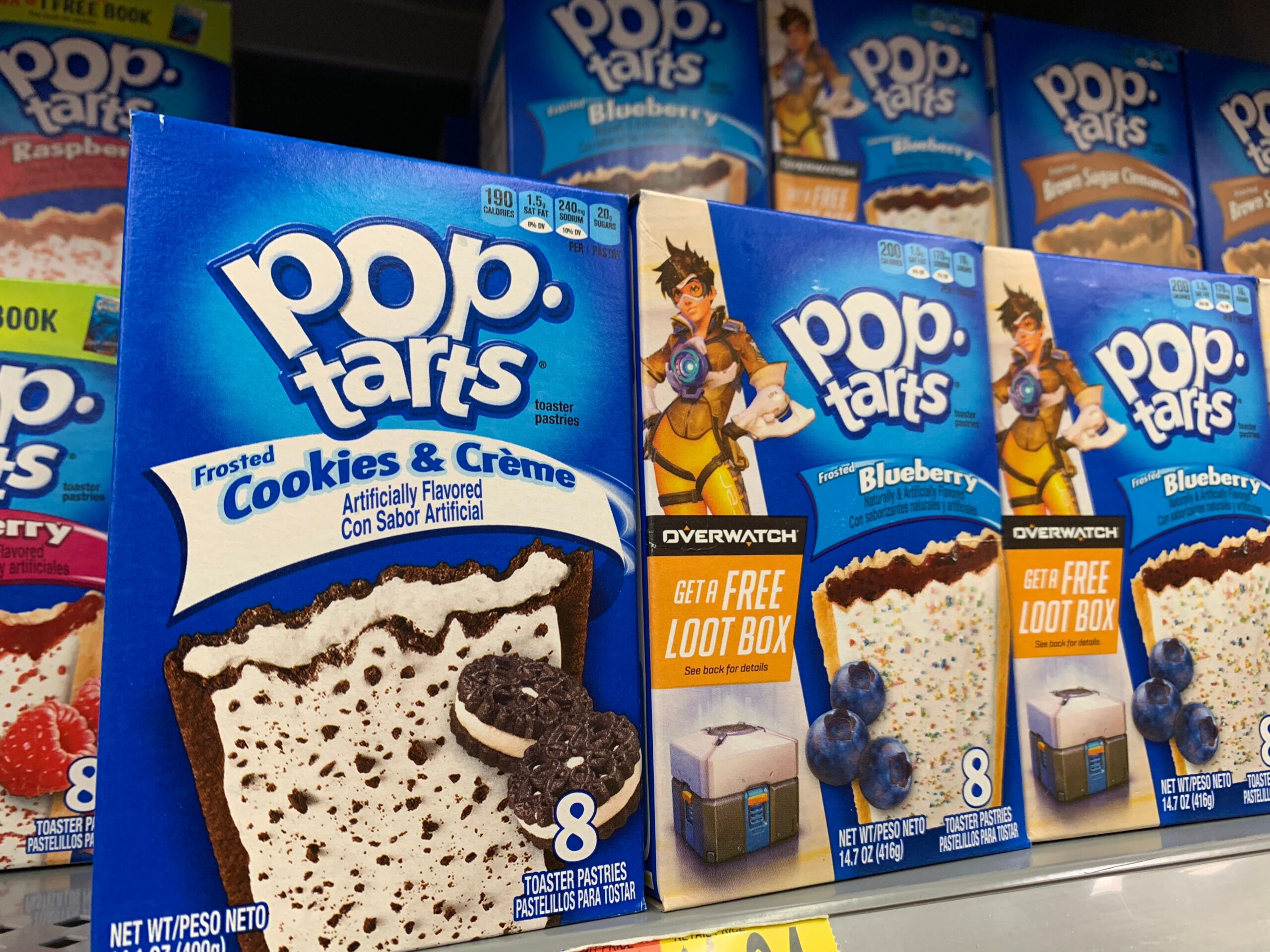
Photo: JJava Designs/Shutterstock
Hear me out on this one. What’s the one thing you crave most when you’re in the middle of nowhere, tired, and maybe a little lost? Something familiar. Something comfortable. What’s more familiar and comfortable than Pop-Tarts? Sure, if you’re at home sitting by the fire, comfort food means mashed potatoes and chicken fingers. On skis in the middle of the woods, comfort food means whatever takes the edge off your hunger, fits in your pocket, and yanks you back in time to a safer, more innocent place. Enter Pop-Tarts.
They might not be as nutritious as trail mix, and should definitely be consumed in moderation, but the nostalgia factor and sugar kick is more than enough to keep you going. Too much sugar will cause you to crash, but a small amount will give you a healthy dose of energy. According to Medical News Today, “sugar is a form of carbohydrate” and “the body breaks down carbohydrates into glucose, which enters the bloodstream and acts as a source of energy.” Besides, with more flavor options than calories per serving, you’ll never get sick of them.
4. Pizza
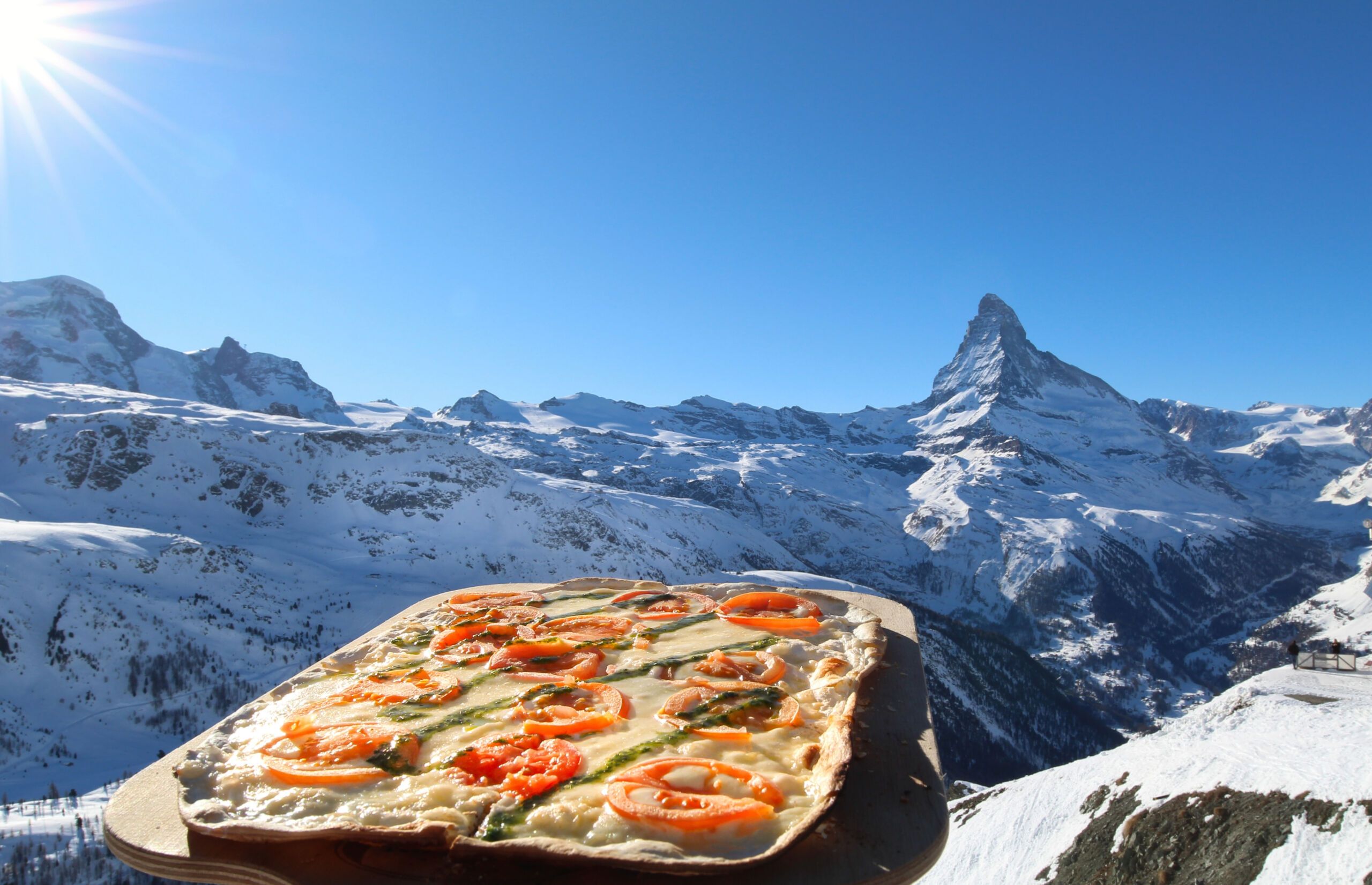
Photo: Bernsten/Shutterstock
Everyone loves pizza. It doesn’t take much arguing to convince someone to grab a slice in pretty much any situation, and that includes backcountry skiing. The only question is — is it convenient? Surprisingly, the answer is yes. Don’t worry, you won’t be buying one of those $5 frozen pizzas and thawing it with your body heat. Order a legit pie the night before your ski adventure, cut it into quarters, fold those quarters, and put them into large ziploc bags. Not all foods taste great as leftovers, but pizza is certainly one of them. As a great source of protein and energy-fueling carbs, it’s not as unhealthy as you might think, either.
5. Small red baked potatoes
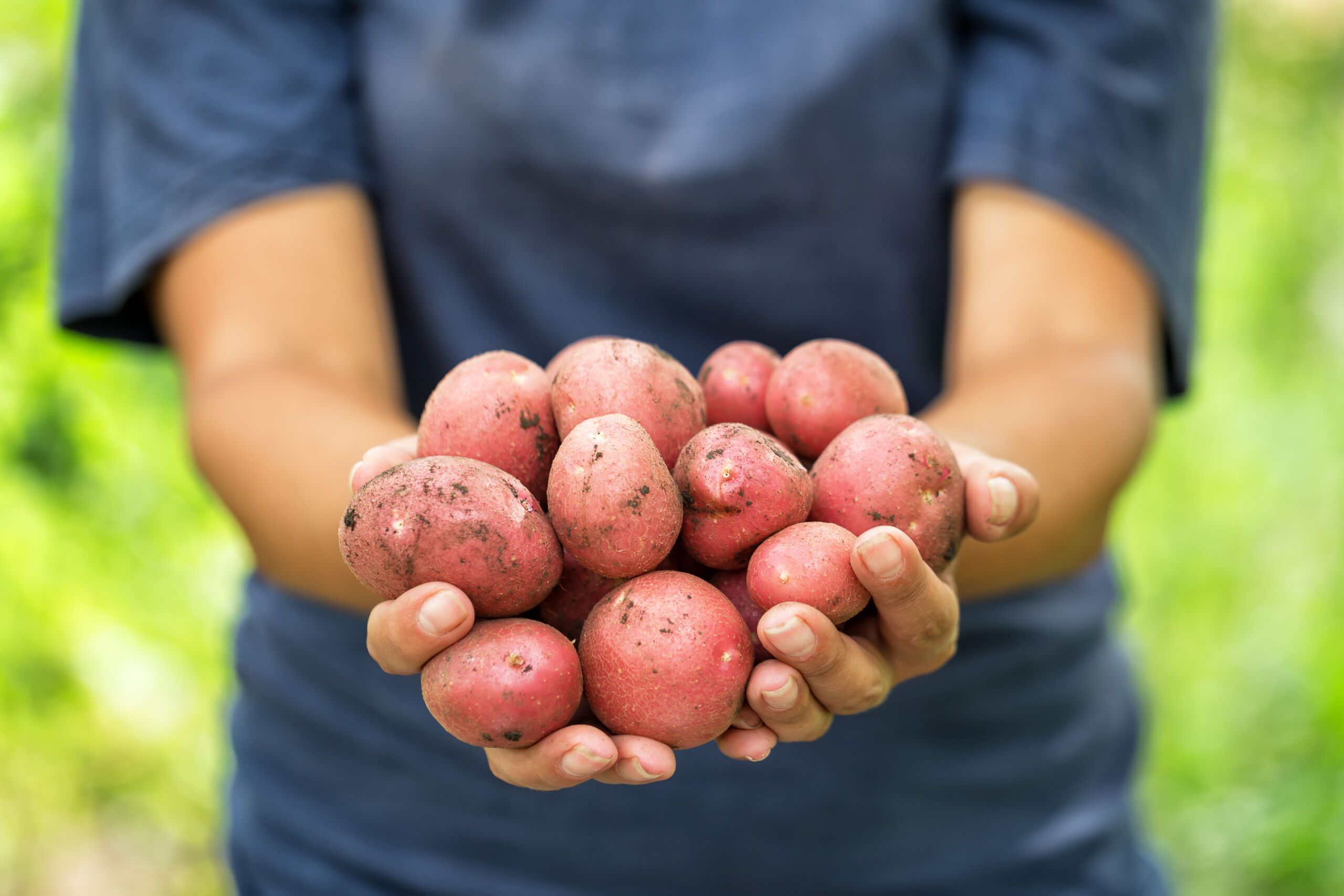
Photo: Alexlukin/Shutterstock
Don’t imagine a piping hot, restaurant-style baked potato loaded with sour cream stuffed into your jacket pocket, emerging all squished and gross. Instead, imagine a carefully pre-prepared snack sitting safely in a ziploc bag or wrapped in tinfoil.
“If you’re in for a full day in the backcountry, coat small baked potatoes with olive oil, salt, pepper, and garlic powder, bake them the night before and just pop ‘em in your mouth every hour or so,” Shaffer says.
It might sound odd, but you can’t argue with the pros.
6. Marge Bars
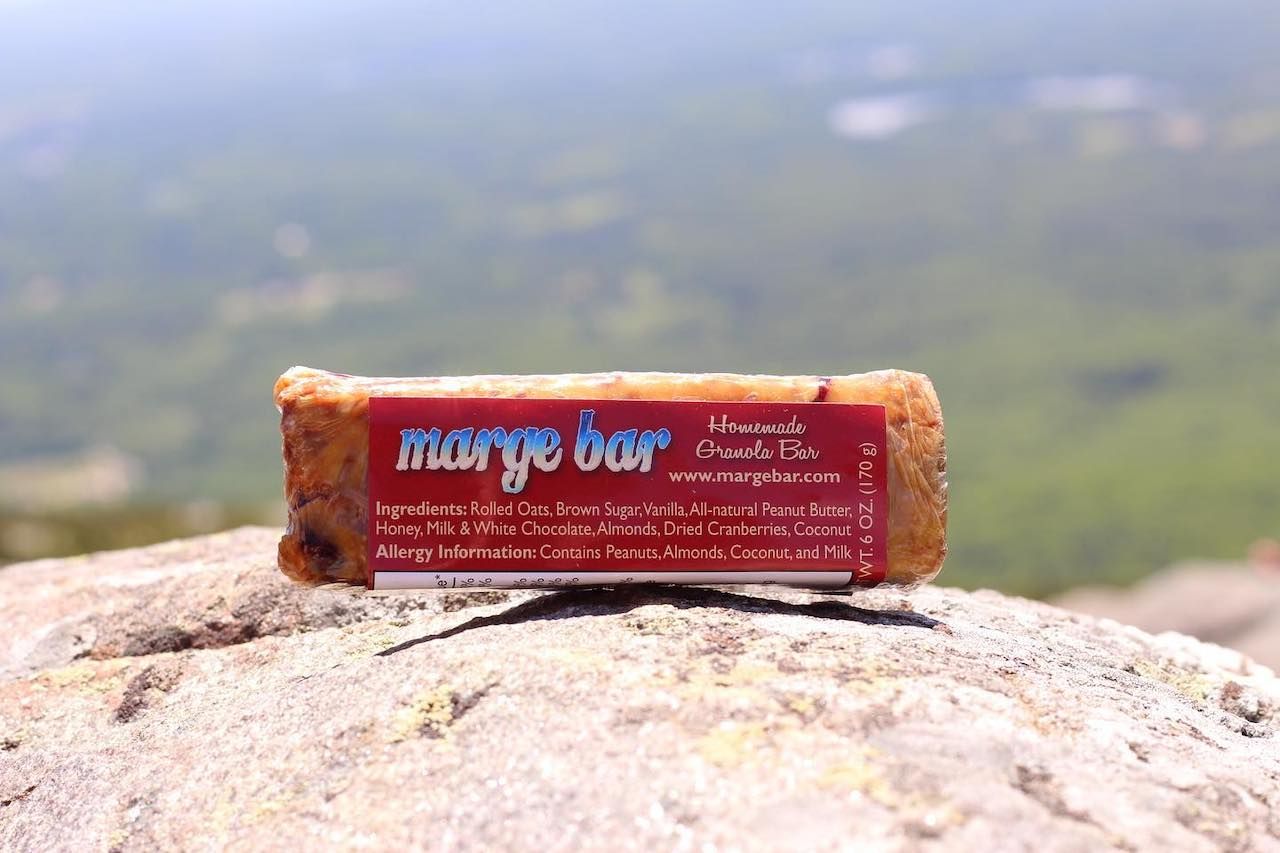
Photo: Marge Bars/Facebook
These dense snacks are like a protein bar and granola bar combined. Marge Bars were created as a snack for hikers who crave a heavy nutritional punch. Each Marge Bar is made with whole grain extra thick rolled oats, all natural peanut butter, honey, dry roasted and unsalted slivered almonds, brown sugar, dried coconut, dried cranberries, milk, white chocolate, and vanilla. It’s basically all the other ski snacks you’ve ever heard of rolled into one. Each bar is two servings, and with 12 grams of healthy fat, 6 grams of protein, and 32 grams of carbs per serving, there’s really no need to pack anything else.
7. PB&J
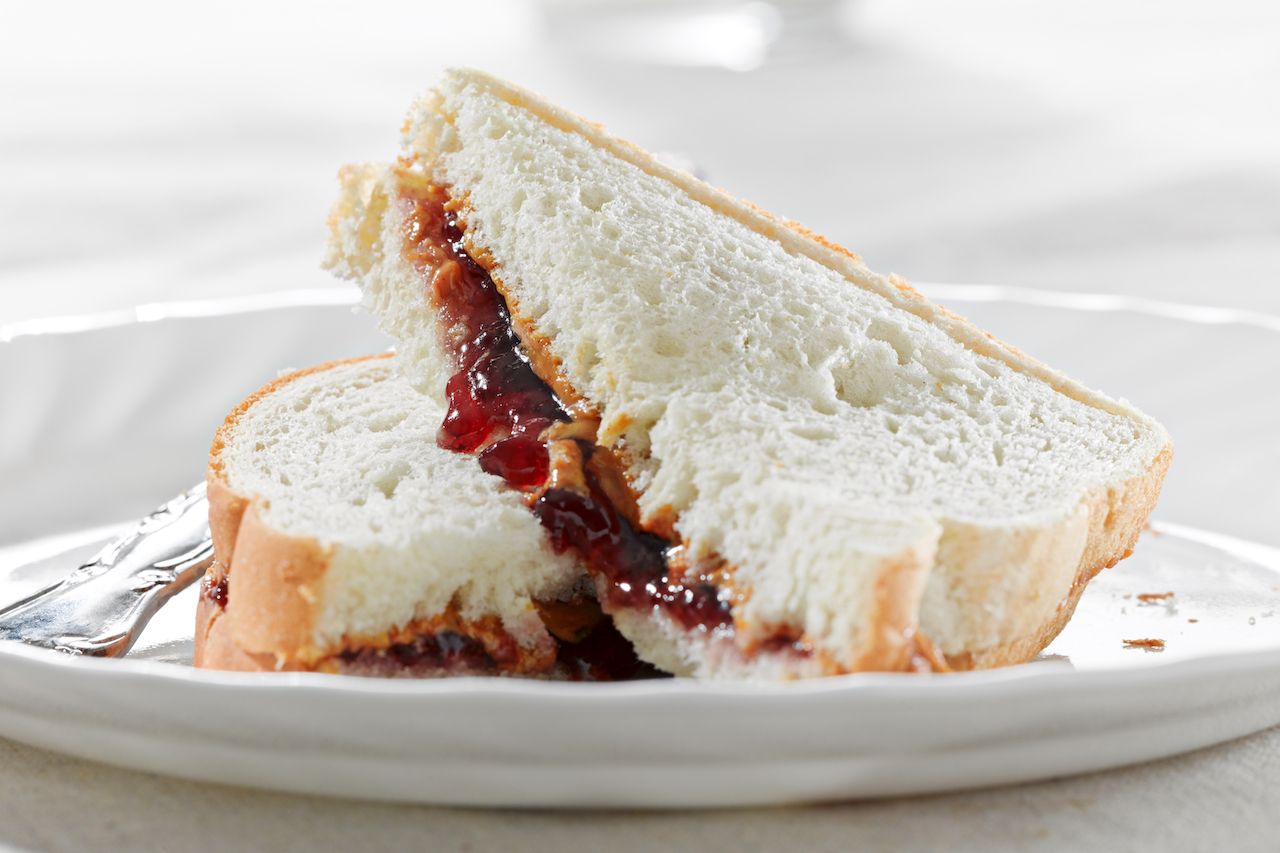
Photo: Joshua Resnick/Shutterstock
This one needs no explanation. A classic peanut butter and jelly sandwich checks all the boxes — easy to make, portable, cheap, tasty, and more nutritious than you might think. There’s a reason ESPN Magazine called PB&Js a “staple snack” of NBA athletes. Though simple on its face, this classic snack has around 15 grams of protein per serving, and 12.5 grams of sugar for a much-needed quick release of energy. In addition to the well-documented health benefits of peanut butter, jams are packed with plants and fruits that give us energy and fiber, which help curb hunger.
Just prepare a few of these bad boys the night before, stuff them in sealable bags, and they’re ready to go. You don’t even have to worry about them becoming messy and gross while you ride, because let’s be honest — they start out pretty messy and gross. They also taste great cold, and take up virtually no room in your jacket or bag, so there’s plenty of space for other snacks as well.